Permissive Parenting Style Effects Parents Adopt A Very Friendly Parenting Approach In This Kind Of Parenting Style, And They Often Do Not Expect Their Children To Act Or Behave In A Mature Manner.
Permissive Parenting Style Effects. We Discuss The Permissive Parenting Pros And Cons, Its Effects On Children, And How Parents Can Improve Their Parenting Skills.
SELAMAT MEMBACA!
Permissive parenting is characterized by parents who are responsive to their children, but lack rules and discipline.

Permissive parenting is sometimes known as indulgent parenting.
Parents who exhibit this style make relatively few demands on their children.
Permissive parenting, otherwise known as 'indulgent parenting' or 'lenient parenting,' is one of the parenting styles identified by diana baumrind (1).

Permissive parenting definition, characteristics and effects.
Permissive parenting, also known as indulgent parenting, is a parenting style characterized by high responsiveness and low demandingness.
Discover which style leads to the best outcomes for kids.
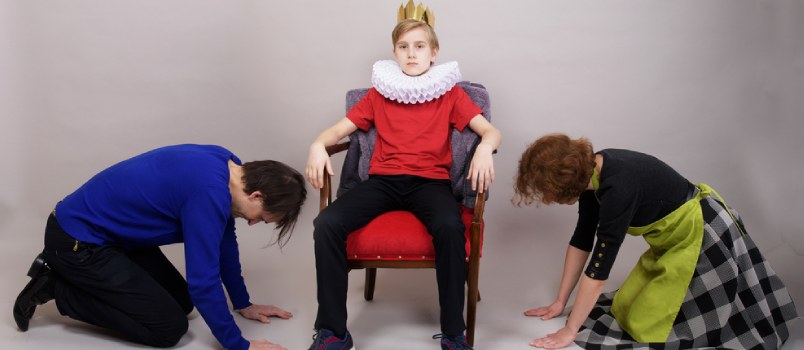
They often encourage their children to talk with them about their problems, but.
The permissive parenting style is an extremely relaxed approach where parents are generally warm, nurturing and affectionate.
Parents can easily be manipulated and controlled by their children.
/2794957-what-is-permissive-parenting-5b2c035943a103003654116b.png)
Permissive parenting is also known as indulgent parenting.
Parents adopt a very friendly parenting approach in this kind of parenting style, and they often do not expect their children to act or behave in a mature manner.
Parents do not like to upset their children.

Being a parent if your approach is lenient towards your child, you will eventually notice that your child is developing permissive parent style permits freedom hence places no limitations on their kids.
Are permissive parents too lax?
What criteria must parents meet to be labeled permissive? here is an overview of permissive parenting:
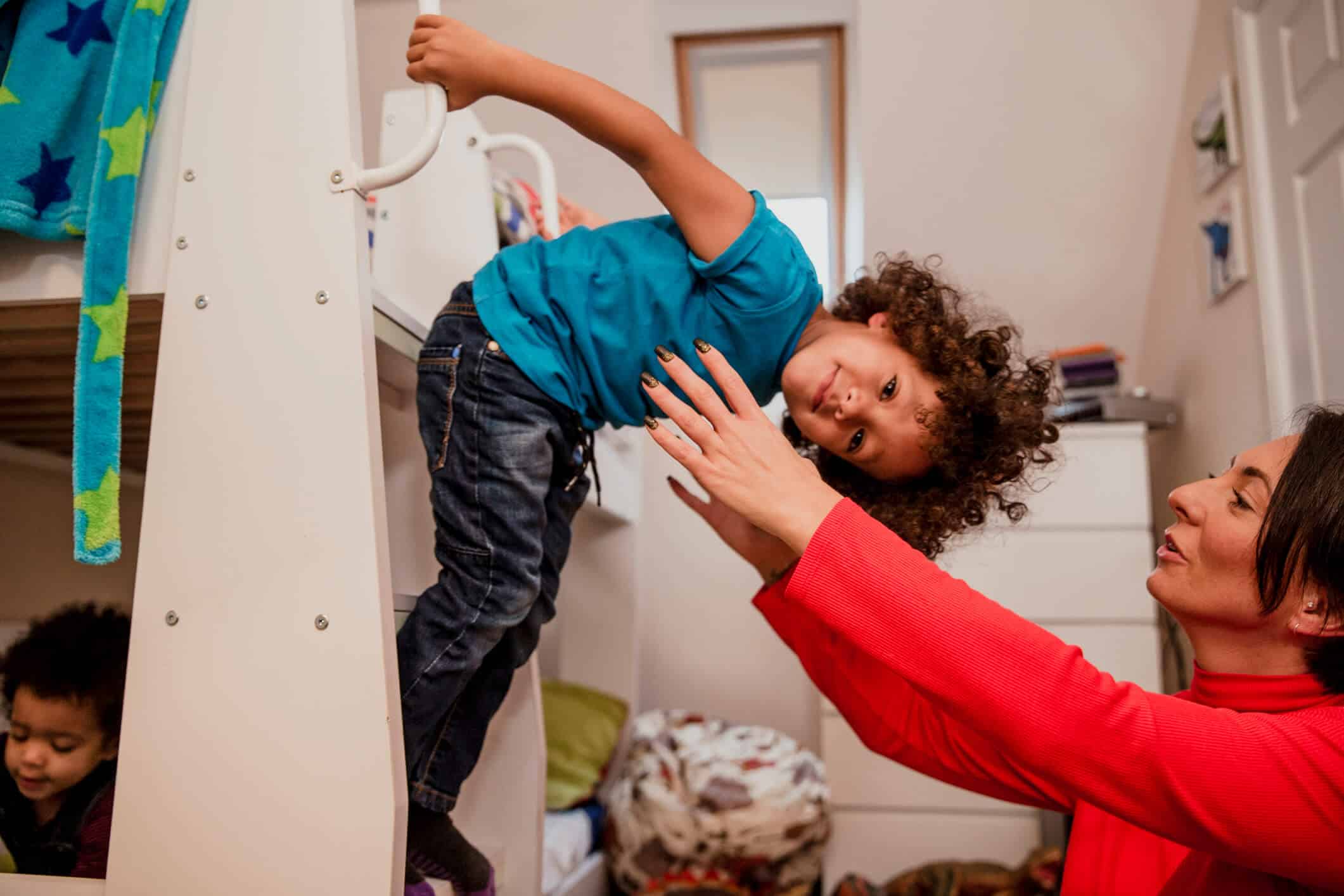
This type of parenting is often measured based on parental reports, but in at least one case it was measured using the reports provided by young adults in a.
Permissive parents may not even realize that they are being permissive, because in many cases their motives are good in wanting to have a close while these positive effects of permissive parenting will propel you to consider this style of parenting, there are some serious drawbacks to it too.
This video is going to help you know more about permissive parenting style and its effect on your child.
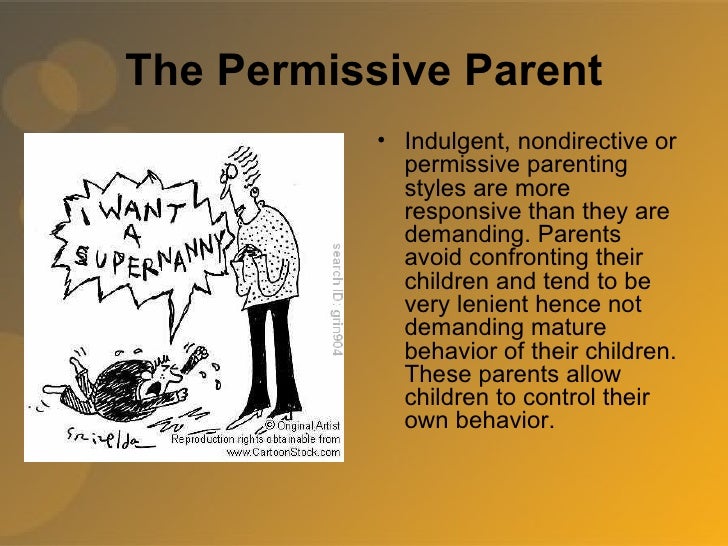
The permissive parenting style in depth:
Taking diana baumrind's definition a step further by understanding the psychological fears of permissive parents.
Trying to find a universally applicable definition of permissiveness in relation to parenting is confusing to say the least.

Understanding what the permissive parenting definition is, learning your parenting style and making adjustments can help you make better parenting choices as you relate to your children.
We discuss the permissive parenting pros and cons, its effects on children, and how parents can improve their parenting skills.
She was the first person who coined traditional parenting styles now widely studied in psychology, including permissive parenting.
/1095045-article-types-of-parenting-styles-5a7cb6aaa18d9e00362ef5eb.png)
Kids do not have many responsibilities and are allowed to regulate their behavior and the majority of their choices.
The negative side effects to this parenting style include:
Children are not required to have good manners or be responsible around the home.

There are a number of parenting styles but there is no particular parenting style that can be said to work for every child and parent.
Permissive parenting is accommodating parenting (sometimes even referred to as indulgent parenting).
While permissive parents are often very responsive and loving, this parenting style is defined by having no rules.
Permissive parenting is a style of parenting where parents typically want to be viewed by their kids as a 'buddy' rather than a parent.
While permissive parents are often described as being very nurturing and loving, this controversial style of parenting is defined for having no rules.
A parenting style is a psychological construct representing standard strategies that parents use in their child rearing.

Permissive parenting is a style of parenting that involves a very indifferent, indulgent or compliant attitude towards your children.
Indifferent to the fact you are not actively being an involved parent and are not acting as if you are concerned or affected by your child's behaviour.
Indulgent in that you are.

At one end of the spectrum is, essentially, neglect:
Where parents shrug and say, 'do most importantly, the parent will listen to the child's request, and talk about the effect, or consequences, and if it isn't possible to do what the child.
The permissive parenting style is a parenting style characterized by an extremely relaxed parental attitude towards the behavior of their children.

Children who are parented in a permissive manner
Permissive parenting is a style which is characterized by placing low demands on a child while 5.
Permissive parenting encourages early maturity.
The effects of parenting styles and childhood attachment patterns on intimate relationships.
Permissive parenting, deviant peer affiliations, and delinquent behavior in adolescence:
The moderating role of sympathetic nervous system reactivity.

Effects of permissive parenting on children children and adolescents from.
Permissive parenting is one of baumrind's parenting styles.
It defines permissive parents as parents with high responsiveness but low a study published in the journal of american college health has examined 524 undergraduates to assess the effects of different parenting behaviors.
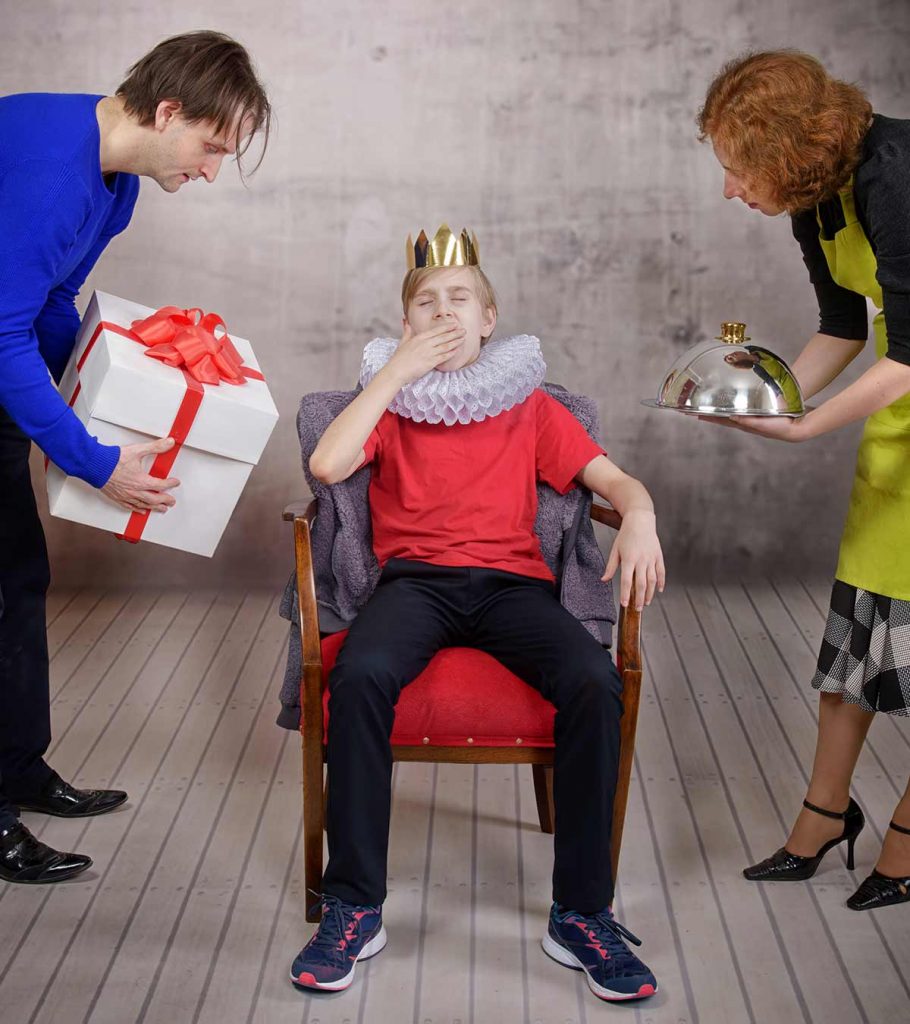
Children with neglectful parents may have huge confidence issues, become.
3 X Seminggu Makan Ikan, Penyakit Kronis MinggatSehat Sekejap Dengan Es BatuMelawan Pikun Dengan Apel8 Bahan Alami Detox Ternyata Tahan Kentut Bikin Keracunan6 Khasiat Cengkih, Yang Terakhir Bikin HebohTernyata Menikmati Alam Bebas Ada ManfaatnyaTernyata Tidur Terbaik Cukup 2 Menit!Ternyata Madu Atasi InsomniaObat Hebat, Si Sisik NagaPermissive parents can make their kids feel like they have no proper guidance or support. Permissive Parenting Style Effects. Children with neglectful parents may have huge confidence issues, become.
Effects of uninvolved parenting on children.

What they do not realize is that they are pushing their children to an extreme.
Parents who exhibit an uninvolved parenting style were often themselves raised by uninvolved and dismissive parents.
As adults, they may find themselves repeating the same patterns they were raised with.

In the uninvolved parenting style, parents seem to not respond to the.
More often than not, uninvolved parents only provide food and shelter to the child and not much else.
Effect of uninvolved parenting on kids.

Characteristics of uninvolved parenting style.
Why do parents usually adopt neglectful parenting style.
Uninvolved parenting style may affect a child in more than one way, and some of the effects of neglectful parenting on a child may include the.

Even for parents with the same parenting style, they may choose to utilize different parenting practices which may affect the degree of outcomes.
This parenting style is not associated with good outcomes for children. uninvolved parenting could lie on a spectrum.
Many parents may provide a lot of resources like a house and food other possible effects of uninvolved parenting on the child include, but are not limited to, depression, low.

At other times, uninvolved parents lack knowledge about child development.
And sometimes, they're simply overwhelmed with other problems, like work.
Authoritative parents are typically seen as the most effective because of their balance of authority and empathy.
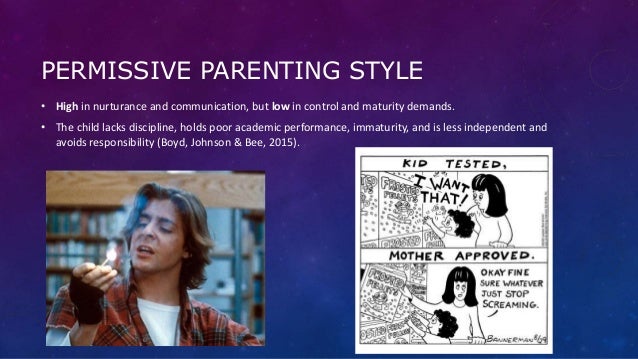
The fourth style of parenting, sometimes referred to as neglectful parenting, in which the parent is indifferent, uninvolved, and sometimes neglectful;
The parent does not respond to the child's needs and makes very few demands;
Uninvolved parenting is associated with the.
Does your challenging lifestyle compel you to adopt an uninvolved parenting style for your kid?
Here are its causes, effects on your child and.
Uninvolved parenting, sometimes referred to as neglectful parenting, can best be described as having low levels of control and strictness as well as low (amiri, p.22).

Uninvolved parents are not necessarily terrible parents.
Largely, the term 'neglectful' parenting style is down to an absence of emotion in their handling what effects does uninvolved parenting have on your children?
Uninvolved parenting can lead to many different issues later in your child's life.
There is little if any expression of love and affection.
Developmental psychologist diana baumrind in her studies based on.
Uninvolved parenting, often known as neglectful parenting, is just a style seen as too little responsiveness to a kid's requirements.

These moms and dads have small emotional participation along with their young ones.
Uninvolved parenting style and its effects.
Become emotionally detached from social situations.

This style was known as «uninvolved» or «neglectful» parenting.
Parenting styles, most notably neglectful parenting, can have a profoundly negative effect on a child's development.
Although this style of parenting isn't always intentional, it.

Yet many parents practice it.
Other than in childhood, parenting a kid would have effects on it even in his adult life.
Your kid would instill specific traits in childhood depending on your parenting style and with the passage of time, these.
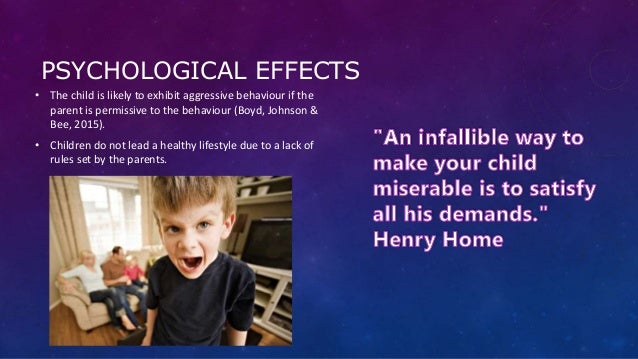
Whereas authoritarian parents overdo their rules and boundaries, and the permissive parent joins their child in breaking the rules, the uninvolved parent neglects their children and has no relationship with them.
Uninvolved parenting causes a parent to get neglectful and its dark effects on the mental well being of a child, every parent should take precautions the crux in uninvolved parenting is the behavior of a parent = effect on the child.
Take a look at some of the characteristics that clearly state and.

The quality of parenting can be more essential than the quantity of time spent with.
Discover how parenting styles affect all parents have their own approach to child rearing, but psychologists have also identified distinctive parenting styles that can have an impact on.
Psychologists describe uninvolved parenting as neglectful parenting.
4 types of parenting styles and their effects on children.
Posted on january 22, 2021.
What are the 4 types of parenting styles, and learn how it affects your children's lives?
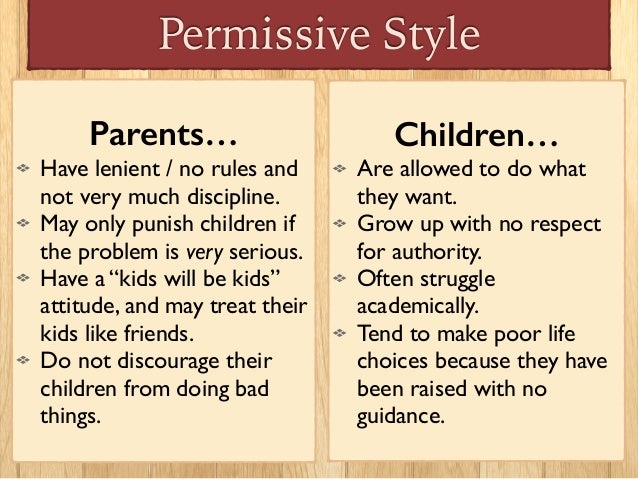
The way a child is being reared affects his or her overall.
These four parenting styles are based on two parental dimensions:
Parental warmth, which is related to parental affection toward and acceptance of the child, and it is also possible that the effects of uninvolved parenting persist through adolescence and into adulthood (nijhof & engles, 2007).

Any interaction tends to be parenting styles can be an important indicator of childhood outcomes.
The style of parenting you choose to use does not necessarily doom your.
Children‟s development indirectly through its effect on parenting styles or other.
Styles employed by parents on children behavior in classroom and their.
Number of chi ldren from authoritarian families involved in.
Permissive parents are not the same thing as neglectful parents.

Neglectful parents also provide no structure ore rules, but they're also totally uninvolved in other aspects of the child's life.
Neglectful parenting , also known as uninvolved parenting, is a parenting style that believes children can raise themselves without much guidance on behalf of the parent.
Neglectful parents don't monitor their children's behaviors and sometimes fail to support their children's physical, emotional.
/children-coloring-with-army-seabag-in-background-180690924-59fe0d969e9427003cf074b5.jpg)
Children bring out a range of emotions in a person.
Having a child can give a parent tremendous joy because of the idea that they can create a new life or because a.
Children bring out a range of emotions in a person. Permissive Parenting Style Effects. Having a child can give a parent tremendous joy because of the idea that they can create a new life or because a.Sejarah Nasi Megono Jadi Nasi TentaraPecel Pitik, Kuliner Sakral Suku Using BanyuwangiTernyata Kue Apem Bukan Kue Asli IndonesiaIkan Tongkol Bikin Gatal? Ini PenjelasannyaNikmat Kulit Ayam, Bikin SengsaraKuliner Jangkrik Viral Di JepangResep Selai Nanas Homemade3 Cara Pengawetan CabaiBir Pletok, Bir Halal BetawiSensasi Kholaqul Ayyam Gumeno, Hanya Ada Saat Ramadhan
Comments
Post a Comment